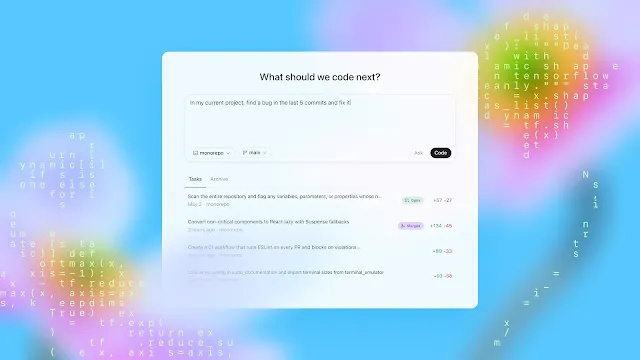After much anticipation, OpenAI has released a research preview of its new coding assistant, called Codex. A tool designed to help seasoned developers hand off repetitive programming chores to an AI that not only writes usable code but also explains each decision it makes in the process.
Accessible directly through the ChatGPT interface, Codex appears as a new sidebar tool within the web app. Developers interact with it by entering a prompt, then choosing whether they want code generation or guidance. With either path, the tool responds within a simulated environment built to mirror the user's actual development stack.
Each task runs inside an isolated container that pulls in the user's current codebase. This gives Codex enough context to offer relevant, accurate output rather than vague or out-of-place suggestions. If users want to guide Codex’s behavior further, they can add a special AGENTS.md file to their repository. That document acts like a manual tailored for the AI—defining architecture details, coding conventions, and project-specific notes.
This system runs on a specialized model called codex-1, which stems from OpenAI’s o3 family but is further refined through reinforcement learning. It was trained not just to output code but to evaluate, test, and revise it—closer to how real programmers work when iterating.
OpenAI isn’t ignoring the skepticism around AI coding tools. Developers have long pointed out that these systems can produce clumsy, error-prone, or even unsafe code—especially when they're asked to generate entire scripts rather than just assist with small pieces. Codex-1 tries to tackle those concerns head-on by making its process visible. Instead of spitting out answers in a black box, it works step by step, showing how it arrives at decisions and flagging uncertainties when needed.
That said, OpenAI urges users not to treat the system as a finished product. Any code it produces still needs thorough human review before it’s used in production. Codex is meant to assist—not replace—the developer’s judgment.
The tool is already rolling out to users on ChatGPT Pro, Team, and Enterprise plans, with support for educational and Plus accounts on the horizon. During the early preview window, access is unrestricted and free for those accounts, though OpenAI has confirmed that rate caps and a pricing model will arrive later as usage scales.
Read next: ChatGPT Usage Statistics: Numbers Behind Its Worldwide Growth and Reach
Accessible directly through the ChatGPT interface, Codex appears as a new sidebar tool within the web app. Developers interact with it by entering a prompt, then choosing whether they want code generation or guidance. With either path, the tool responds within a simulated environment built to mirror the user's actual development stack.
Each task runs inside an isolated container that pulls in the user's current codebase. This gives Codex enough context to offer relevant, accurate output rather than vague or out-of-place suggestions. If users want to guide Codex’s behavior further, they can add a special AGENTS.md file to their repository. That document acts like a manual tailored for the AI—defining architecture details, coding conventions, and project-specific notes.
This system runs on a specialized model called codex-1, which stems from OpenAI’s o3 family but is further refined through reinforcement learning. It was trained not just to output code but to evaluate, test, and revise it—closer to how real programmers work when iterating.
OpenAI isn’t ignoring the skepticism around AI coding tools. Developers have long pointed out that these systems can produce clumsy, error-prone, or even unsafe code—especially when they're asked to generate entire scripts rather than just assist with small pieces. Codex-1 tries to tackle those concerns head-on by making its process visible. Instead of spitting out answers in a black box, it works step by step, showing how it arrives at decisions and flagging uncertainties when needed.
That said, OpenAI urges users not to treat the system as a finished product. Any code it produces still needs thorough human review before it’s used in production. Codex is meant to assist—not replace—the developer’s judgment.
The tool is already rolling out to users on ChatGPT Pro, Team, and Enterprise plans, with support for educational and Plus accounts on the horizon. During the early preview window, access is unrestricted and free for those accounts, though OpenAI has confirmed that rate caps and a pricing model will arrive later as usage scales.
Read next: ChatGPT Usage Statistics: Numbers Behind Its Worldwide Growth and Reach

